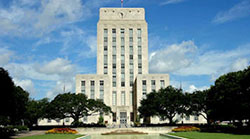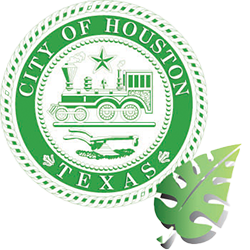Green Houston
Press Releases and Green News
Biden Moves to Build Coast to Coast Network of Electric Car Chargers
James Osborne
Houston Chronicle (link may expire over time)
February 10, 2022 -- The Biden administration is moving to create a nationwide network of electric vehicle chargers that would enable Americans to drive long distances without concern for running out of power.
With $5 billion in funding from last year's bipartisan infrastructure bill, the administration is asking states to submit plans for developing electric charging routes along interstates and state highways. Texas, with its vast network of roadways, is expected to get more than $400 million in funding, more than any other state.
"A century ago, America ushered in the modern automotive era; now America must lead the electric vehicle revolution,” U.S. Transportation Secretary Pete Buttigieg said in a statement.
The Biden administration has looked to expand electric vehicles as a means of getting Americans out of gasoline and diesel-powered vehicles that contribute significantly to climate change.
But while EV sales are increasing steadily, there remains a lag in charging infrastructure - leaving EV owners with so-called range anxiety.
A 2017 study by the National Renewable Energy Laboratory found that at current projections, the United States needs to build more than 130,000 charging ports per year through 2030 - up from 11,000 at the time of the study.
"With this money flowing to Texas, we can start to build for the electric vehicle revolution we know is coming," said Lennis Barlow, of the non-profit Environment Texas. "Texans will start seeing charging stations along highways, in state parks, in shopping centers and apartment complexes and everywhere people drive."
The $5 billion in funding from the infrastructure bill, to be spent over the next five years, will only get the United States a fraction of the way to what federal official believe is necessary if projections prove out. The hope among administration officials is to set the standard on what types of charges are needed, giving private companies incentive to invest in charging stations.
"We need a network that functions universally like gas stations, not a patchwork of disconnected systems with different specifications," said one senior administration official.
The administration is asking state governments to submit plans for their review, with plans to dole out more than $600 million in the first year.
The program requires charging infrastructure primarily along highways, so as to ensure rural drivers also have access to chargers, officials said.
Currently, adoption rates for electric vehicles are 40 percent less in the countryside compared to cities.
"We are modernizing America’s national highway system for drivers in cities large and small, towns and rural communities, to take advantage of the benefits of driving electric,” Secretary of Energy Jennifer Granholm said in a statement.







